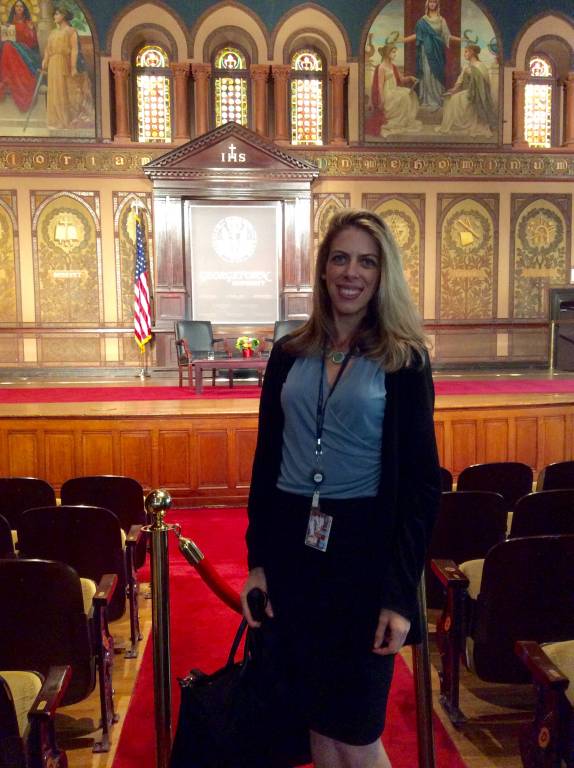This post was written by Rebecca Donsky, a 2016 candidate for the Global Health Law LL.M. at Georgetown Law. The views presented here are her own.
On September 30, 2015 I attended an event at Georgetown Law hosted by Professor Eric Rosenthal of Georgetown Law, the Human Rights Institute, and Disability Rights International (DRI), an International human rights organization in Washington, DC. During this event I witnessed the premier of the PBS visionaries documentary Disability Rights International: No One Left Behind.
The film was a graphic showcase on children who were left behind in orphanages in the Republic of Georgia. The film demonstrated how children are left without adequate support and personal contact in the orphanages. Professor Rosenthal showed his experiences firsthand in his visit to the orphanages and described DRI’s efforts to help end these abuses faced in the institutions. Professor Rosenthal emphasized how families and community groups can help save children who do not receive life saving medical care in the institutions.
I am a Global Health Law LL.M. student at Georgetown Law. The evening was a visual symbol of what I have learned during the beginning of my program. One topic that I examined this semester was the Right to Health. The World Health Organization Constitution has holistically defined health as, “a state of complete physical, mental and social well-being and not merely the absence of disease or infirmity.”
The WHO Constitution notes further that, “the enjoyment of the highest attainable standard of health is one of the fundamental rights of every human being without distinction of race, religion, political belief, economic or social condition.”
The film was inspiring and showed the interplay between physical and mental health. The film depicted the frightening effects of children with mental disabilities who are left without families and care in institutions. The film also showed the enlightening effects of children who are raised in families and given a chance. In the film, Professor Rosenthal shared back to back moments: The first was a disabled baby in the Tbilisi Infant Home in the Republic Georgia whose chance at a normal life was broken due to developing hydrocephaly as a result of not receiving care early on in development. Professor Rosenthal witnessed in his documentary “little kids in cribs whose heads were ballooning” due to excessive water on the brain. But at the a same time Professor Rosenthal shared a moment visiting a baby whose life was saved because he was not neglected and received proper care. He stated in the film: “To see a person whose life you know you have saved…….that is an incredible experience.” The children portrayed in the documentary were in need of families, guidance and a chance of experiencing the right to health.
I applaud Professor Rosenthal for opening up the conversation on disability rights in the community. I found this documentary to be provoking. I enjoyed learning about a Professor’s passion and global work in the field of disability rights. For those that were not able to attend, a trailer is available here.
Latest
Mantener la prohibición de la exhibición indirecta de productos de tabaco salva vidas
Ariadna Tovar Ramírez Fernanda Rodríguez-Pliego




